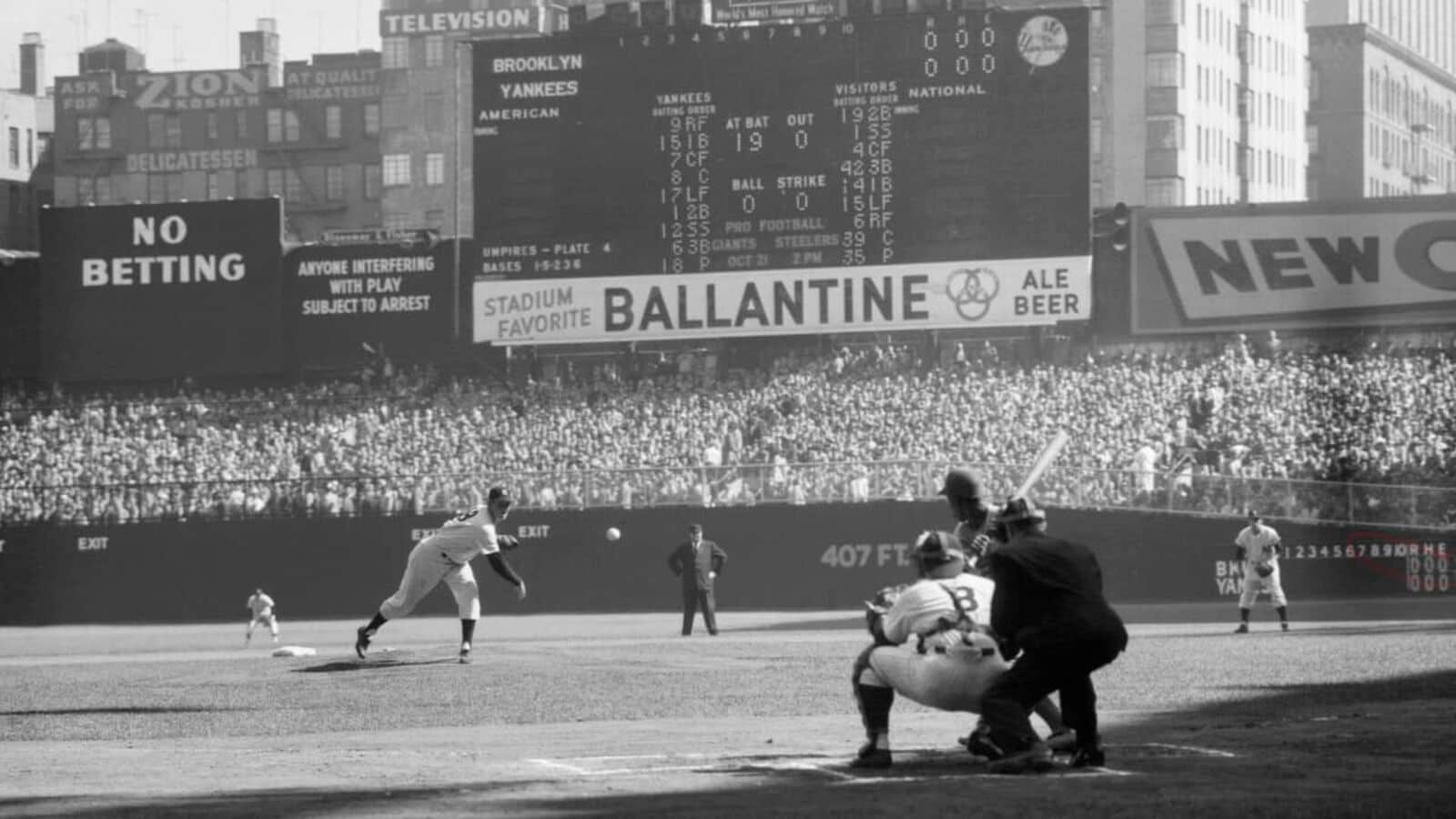
You have to look closely to see it in the background of the film footage. But as Lou Gehrig, on July 4, 1939, was delivering his “luckiest man on the face of the Earth” address in Yankee Stadium, perhaps the most famous speech in sports history, it’s off there in the distance—an all-capital-letters sign on the outfield wall just to the left of the scoreboard: “Betting prohibited.”
Likewise, when Don Larsen was pitching the first and only perfect game in World Series history on Oct. 8, 1956, there was a sign on that same outfield wall. You can see it in photographs taken from certain angles—slightly reworded in the years after Gehrig’s speech, but still in all-caps so no one in the ballpark could miss it: “No betting.”
Such signs are no longer seen in Yankee Stadium or other ballparks. The much-commented-on influence of online gambling sponsorships in professional sports would make the signs seem laughable. But the sight of those old signs in vintage sports photos is an indication of a more profound change in American life.
The no-betting signs reminded fans in the seats: This is a ballpark, not a gambling den. Don’t even think about sullying it. The Black Sox scandal of 1919 wasn’t all that distant a memory; gambling was officially regarded as something unsavory, not only in sports but throughout society.
Police in cities big and small swooped in on gamblers. Private card games: “Vice Squad Raids City Poker Game,” Daily Oklahoman, Dec. 2, 1946. Privately run lotteries: “Police Nab Avondale Man, Numbers Racket Suspect,” Cincinnati Enquirer, Sept. 15, 1961. Friends playing craps: “Vice Squad Arrests 11 in Dice Games,” Corpus Christi Caller-Times, Oct. 23, 1949.
So what happened? Corporations and governments decided that maybe gambling wasn’t quite so bad, as long as they were the ones profiting from it. The poker and dice games suddenly became acceptable once casinos expanded beyond Las Vegas. The numbers racket became wholesome once states took over the job of selling and reaping the rewards from lottery tickets. And the big sports leagues, while still feigning shock and indignation whenever a player or umpire is caught gambling, are happy to pocket the money from their partnerships with internet-based bookies.
Perhaps the biggest television-and-digital sports arena of all, ESPN, formed a partnership in 2023 with a gambling company to set up an online casino in a $2 billion deal capitalizing on “ESPN’s industry-leading brand and multiplatform reach” to connect with would-be bettors. The network reports on athletes being disciplined for gambling, while on its web-betting page fans are invited to bet on that day’s games.
The big question: Was America right during the years when it finger-waggingly decreed gambling as a stain on the nation, something to be scorned and wiped out? Or is America right today, when the biggest companies and government entities proclaim that gambling is as cheery as a summer sunrise?
One or the other has to be true. Those “No Betting” signs are gone from outfield walls. Will they ever come back? Don’t bet on it.
Mr. Greene’s books include “When We Get to Surf City: A Journey Through America in Pursuit of Rock and Roll, Friendship, and Dreams.”